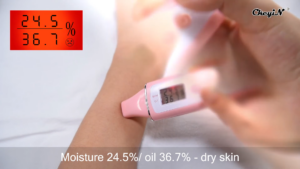Maintaining dental and gum health is crucial for overall well-being, and women, in particular, face unique challenges that require attention. Hormonal fluctuations during menstrual cycles, pregnancy, and menopause can impact oral health, making consistent dental care vital. By adopting effective oral care habits, women can prevent common issues like cavities, gum disease, and bad breath. Regular brushing, flossing, and dental check-ups form the foundation of a healthy smile, contributing to both physical health and self-confidence.
Effective strategies for maintaining dental and gum health involve more than just routine care. A balanced diet, rich in vitamins and minerals, supports strong teeth and gums. Additionally, avoiding sugary snacks and drinks helps reduce the risk of tooth decay. Using fluoride toothpaste and mouthwash can strengthen enamel and prevent cavities. For women, staying informed about how hormonal changes affect oral health and seeking professional advice when needed ensures long-term dental and gum health.
Maintaining dental and gum health is essential, especially for women who face unique challenges due to hormonal fluctuations. Here are key strategies and practices to consider for optimal oral health.
Impact of Hormonal Changes on Oral Health
Hormonal changes during different life stages, such as menstruation, pregnancy, and menopause, can have a profound impact on a woman’s oral health. These fluctuations can lead to increased blood flow to the gums, making them more sensitive and prone to swelling and bleeding. During pregnancy, the risk of developing gum disease, known as pregnancy gingivitis, increases. Understanding these changes allows women to take extra precautions, such as more frequent dental check-ups and enhanced oral hygiene practices.
Menopause brings its own set of oral health challenges, including dry mouth and a higher susceptibility to bone loss, which can affect the jawbone supporting the teeth. The decrease in estrogen levels can also lead to receding gums and increased risk of periodontal disease. Women experiencing these changes should consider using saliva substitutes and maintaining a rigorous dental care routine to mitigate these effects. Regular consultations with a dentist can help manage these symptoms and maintain overall oral health.
Understanding the impact of hormonal changes on oral health is crucial for effective dental care. The following sections explore how these fluctuations affect oral health and offer insights into managing these effects.
1. Hormonal Fluctuations During Menstruation and Pregnancy
Hormonal fluctuations during menstruation and pregnancy can significantly impact oral health. During menstruation, increased estrogen levels may cause gum sensitivity and bleeding. In pregnancy, elevated hormones can lead to pregnancy gingivitis, characterized by swollen, bleeding gums. These changes make it essential to maintain rigorous oral hygiene and schedule more frequent dental visits to manage and mitigate these effects effectively.
2. Oral Health Challenges During Menopause
Menopause brings its own set of oral health challenges due to decreased estrogen levels. Women may experience dry mouth, which can increase the risk of cavities and gum disease. Additionally, the decline in estrogen can lead to bone loss in the jaw, affecting dental support structures. Addressing these issues with proper hydration, a balanced diet, and regular dental check-ups can help manage these symptoms and maintain oral health during menopause.
Effective Oral Care Habits for Women
Adopting effective oral care habits is essential for preventing dental issues and ensuring a bright, healthy smile. Regular brushing with fluoride toothpaste helps remove plaque and strengthens tooth enamel, while daily flossing reaches areas between teeth that a toothbrush cannot access. Using an antibacterial mouthwash further aids in reducing plaque buildup and preventing gum disease. These practices collectively work to prevent cavities and maintain optimal oral hygiene.
In addition to proper brushing and flossing, maintaining a balanced diet rich in calcium and vitamins is crucial for strong teeth and gums. Calcium supports tooth structure and bone health, while vitamins such as A, C, and D contribute to gum health and overall oral tissue integrity. Routine dental check-ups play a vital role in catching and addressing potential issues early, ensuring that any problems are managed promptly and effectively. This comprehensive approach to oral care not only promotes dental health but also enhances overall well-being and self-confidence.
Conclusion: The Importance of Comprehensive Oral Care
Maintaining dental and gum health is essential for overall well-being, especially for women who encounter unique challenges due to hormonal fluctuations. Regular brushing, flossing, and the use of antibacterial mouthwash help prevent common dental issues like cavities and gum disease. Additionally, a balanced diet rich in calcium and vitamins supports strong teeth and gums. Consistent dental check-ups ensure early detection and management of potential problems, promoting not only oral health but also overall self-confidence and physical wellness.
By adopting a comprehensive oral care routine, women can effectively manage the impact of hormonal changes on their dental health. Addressing these challenges with proactive care, including regular dental visits and tailored hygiene practices, can prevent issues and maintain a healthy smile. Embracing these habits fosters long-term dental health, contributing to a sense of well-being and boosting self-esteem, making it a crucial aspect of women’s overall health and daily life.








